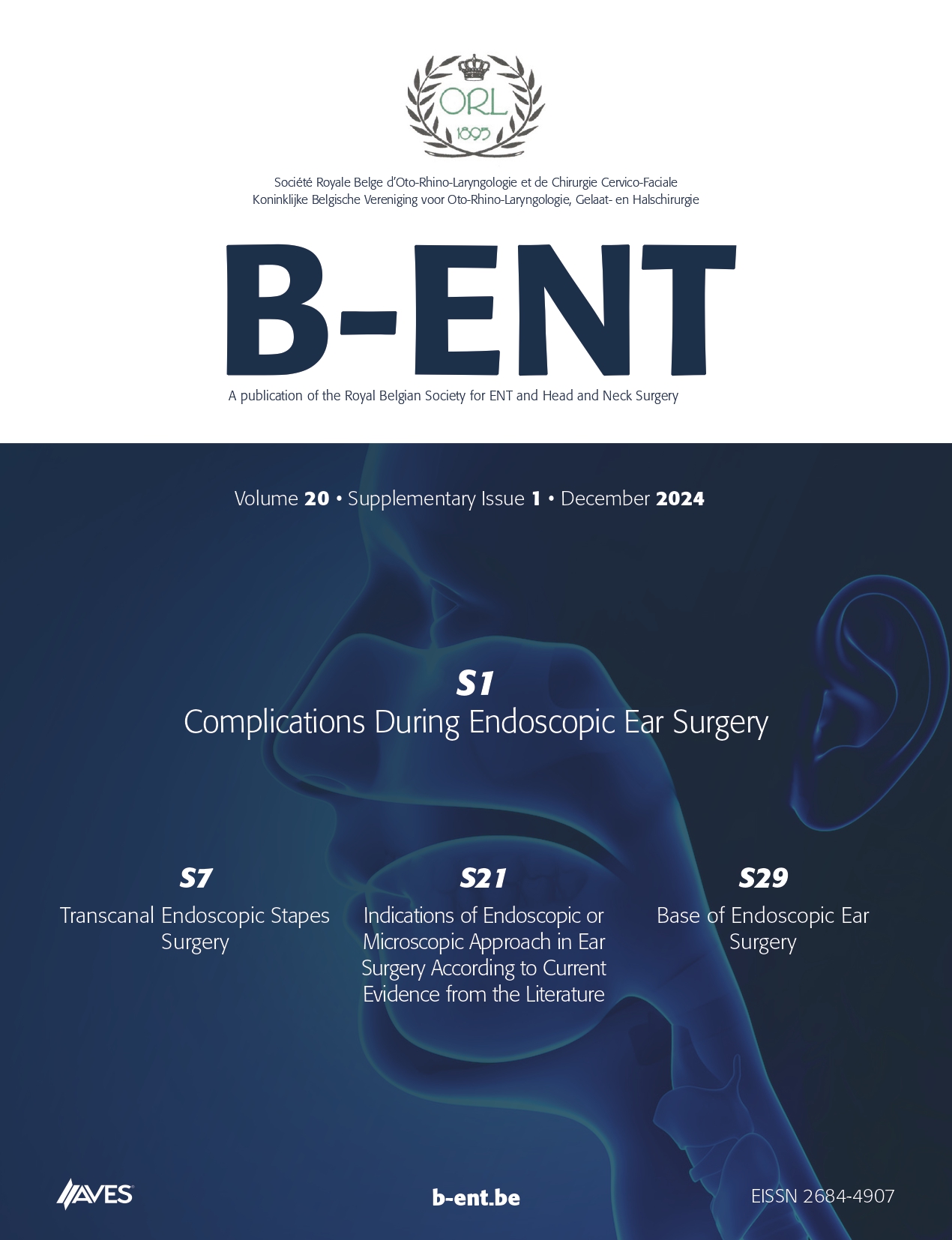Hearing outcome after gentamicin for intractable ménière’s disease. Objective: This retrospective study aimed to investigate our current intratympanic gentamicin (ITG) protocol for long-term (>2 years) hearing outcomes in patients with Ménière’s disease (MD). The secondary aim was to evaluate long-term vertigo control.
Materials and methods: Included patients had unilateral definite MD with intractable vertigo spells despite optimal medical treatment. Our protocol involves one-hour round window application of 40 mg/ml gentamicin solution through tympanostomy. ITG was repeated only if vertigo recurred. Hearing was considered worse if the pure-tone average (PTA) increased by 10 dB HL or more and improved if PTA decreased by at least 10 dB HL. Paired t-tests were used to compare mean threshold levels at baseline and 2-year follow-up.
Results: Of 55 patients included for evaluation of vertigo control at 2 years, 27 had >2-year audiometric follow-up. Hearing outcome was worse in 4 (15%), unchanged in 15 (55%), and improved in 8 (30%) of these 27 patients. PTA (mean ±s tandard deviation) was 57±18 dB HL at baseline and 56±19 dB HL at long-term follow-up (p>0.05). Twelve patients required multiple injections, and their final threshold at 8 kHz differed significantly from baseline (p=0.0047). Vertigo control was obtained in 51 out of 55 included patients (93%).
Conclusion: The protocol of a single ITG injection of 40 mg/ml for one hour for unilateral MD with intractable vertigo spells carries a low risk of long-term sensorineural hearing loss (15% of patients). With multiple injections, significant hearing loss was observed at 8 kHz only.



.png)
